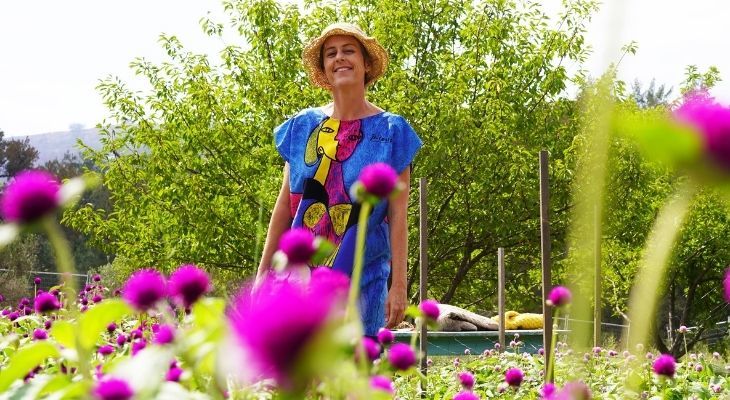The natural and organic industry is continuously growing and shifting, with new trends, regulations, products and practices being introduced into market everyday. How does one keep on top of it all? Naturally Good has you covered, as we speak to industry professionals and experts on the hottest topics and trends, business practices and solutions, and what’s happening in the natural and organic industry.
Elisia Gray has has over 13 years in the manufacturing and retail business, and is the Ethical Buyer for LUSH Cosmetics. Not only is she responsible for sourcing ingredients that comply with the company’s high ethical standards, she is also part of their EarthCare team and a Rewilding and Biodiversity team that actively seeks out projects that address environmental issues at a root cause level. Elisia gives us a behind-the-scenes look into the process of ethically sourcing ingredients, what she sees as the reasons for consumers growing demand for businesses becoming more socially and ethically responsible, as well as her advice to businesses looking to become more ethical.
Consumers are now paying more attention to not only what goes into products, but also about how they are made, from the beginning right through to the end. What do you think is the reason behind this focus on ethics in supply chains?
The accessibility and sharing of information has meant that the broader public is very interested in the supply chain and can be very meticulous when it comes to doing their own research. Consumers want to know about the ingredients in the product, how it is made and the origin of the manufacturer. This level of interaction with the supply chain is quite intimate for cosmetics and fashion, however we are yet to see these same levels of interest in the supply chain when it comes to phones, gaming and technology more broadly.
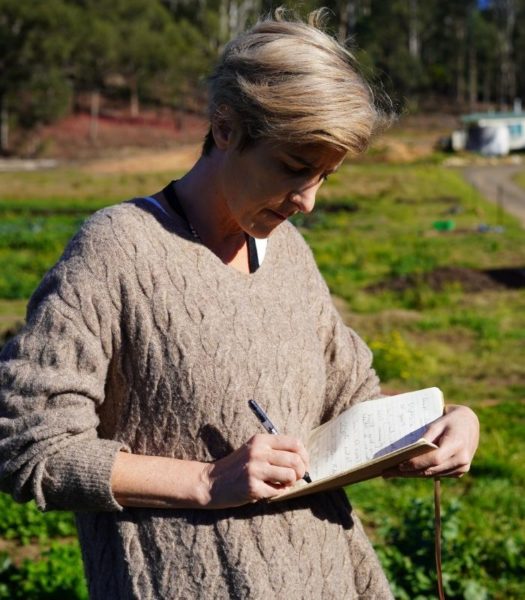
I think one of the biggest reasons consumers are paying more attention as to what is going into cosmetic products has a lot to do with a lethargy consumers feel about greenwashing. Consumers want to do their own research as many feel they can’t trust companies and I think rightly so!
COVID19 has changed many consumers’ priorities and the sentiment towards purchasing Australian made or manufactured in Australia carries more significance. Consumers are wanting to support local employment and local manufacturers. When Holden went offshore and closed its Australian manufacturing facilities down, it was interesting to see how deeply sentimental the public were. Now more than ever before people are supporting local brands whether it is a small start-up or something bigger that you grew up with and have a renewed sentimentality about.
Lush manufactures its cosmetics products in Villawood, NSW. We normally employ about 100 staff on site throughout the year, however around Christmas trade our staffing numbers can swell up to 300. We have many more people working in our factories than we have machines. We produce cosmetics with our personal touch, creating local jobs and using local resources. We add stickers on our products telling customers who made it, when it was made, when it goes out of date, and include the face of the person that made it.

Can you take us behind the scenes as to what the process is in acquiring ethically sourced ingredients?
Sometimes it is as simple as a really good Google search and other times it requires much more elbow grease. Often the best suppliers are found through your existing supplier relationships. I make an effort to visit suppliers, in particular where we are working with growers and producers so that we can learn about their processes and share their story. It’s in these visits that I’ll often learn about neighbouring producers or the adage ‘I know a guy’. To visit suppliers often means I am in a car driving hours inland into a remote town.
While driving in the country I tend to see many small producers and I can’t be shy about pulling over and introducing myself. I am not a naturally sociable person, but the most important thing is to do it despite yourself, where you have that internal voice pushing you out of your comfort zone.

You can meet your suppliers in some of the strangest places. It was not too long ago that I arrived at a supplier visit too early so popped down the road to what seemed like a small coffee shop from the front entrance. Well I was also in need of a coffee supplier at the time too and noticed that the café was half coffee shop and half roasting house. When I was served my coffee I was given a little card about the origin of the coffee and some information on their supply and quickly became enamoured with this little spot. I asked to speak to the owner and before I knew it I was digging around the back of the roasting area with the owner and a month later we started to use their Fair Trade coffee in our face mask called Cup of Coffee, that supplier is Roastville in Marrickville. It’s usually the people behind the brand that give me the impression of the company’s ethical compass.
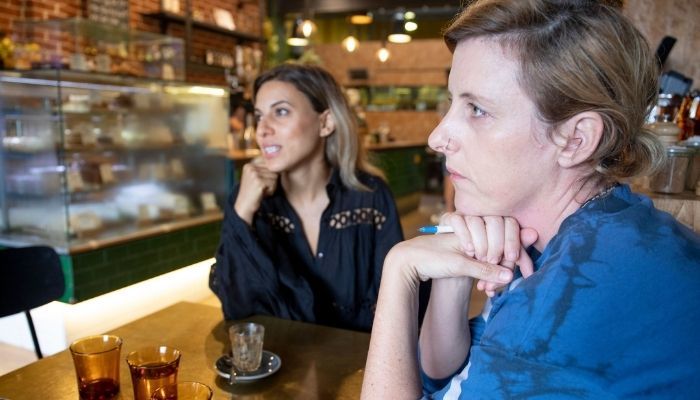
By no means do I expect a company to be perfect and I am always willing to start wherever the company is at and grow with them. LUSH Cosmetics as a company are by no means perfect and while it is nice to share our positive initiatives to be a role model to others, I always feel uncomfortable when people put us on an ethical pedestal as we still have a lot to learn and I also like to share stories that demonstrate fallibility too.
LUSH Cosmetics non-negotiable when it comes to supply is no animal testing in any of the raw materials we purchase and from the companies inventory of materials we purchase from the go into our products. All new suppliers sign a non-animal testing form and then sign it again on an annual basis as part of a review. When researching a new material or supplier some of the actions I take might include; looking into the company background, investigating the working area of staff if geographically possible, asking about practices they are proud of and working on, talking about soil, there are so many questions depending on the type of supplier. It’s a fine line to balance between sounding like an auditor and sounding like an interested customer.
Consumers are now more likely to purchase from brands who support a cause, and LUSH support several social and environmental causes. What do you think the link is between supporting a cause and consumers purchasing from the business?
Our brand was founded by a group of activists that didn’t want to leave their beliefs at the door when they went to work. The causes we have been founded on are focused on human rights, environmental conservation and animal welfare. Within those principles we are able to find ways they connect between our brand and product offering. For example, Australia is an ocean loving country and we very much care about not polluting waterways with microplastics and synthetic glitters so we get behind ocean campaigns and leverage our influence to foster change in this area. We have a history of campaigning with Sea Shepherd and other groups focused on ocean conservation.
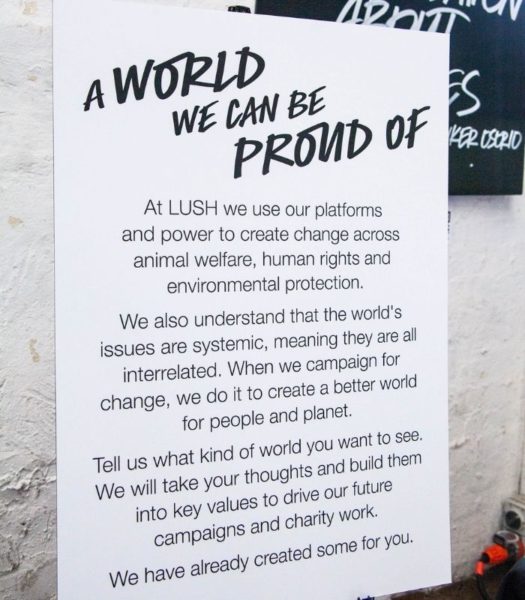
We at LUSH Cosmetics often think of shop windows as billboards and offer them up to groups and causes that align with our values when campaigning. About 10 years ago we had the realisation that we were picking up causes month-to-month and campaigning on them and then our relationship with the cause would quickly drop off. We realised it was not a strategy that was genuine or that could affect long term change.
Since then, LUSH Cosmetics have actively taken a layered approach with longer term strategies that no longer are ‘flash in the pan’ campaigns. So with the human rights issues over the Australian government treatment of of people seeking asylum, we have taken a layered approach over the years through various tactics, such as sharing stories of lived experienced on our social platforms, educating staff through campaign packs, inviting speakers to Managers meeting events and offering employment opportunities in our business through centre such as ASRC. This has given our brand a level of credibility and the genuine ability to create a positive impact, elevate voices of lived experience and get more eyes on an very important human rights issue.
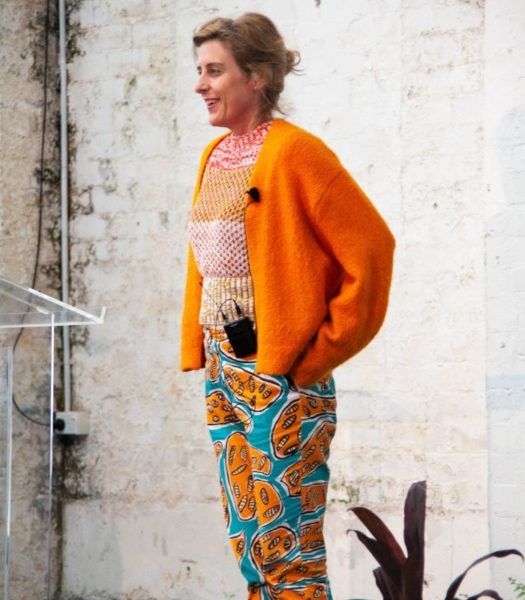
What advice can you offer to businesses looking to ethically source ingredients? What steps can they take?
My biggest tip is to just pick up the phone and talk to suppliers. Don’t make it a desk and email job. Talk to people, go have a coffee and learn about their business and the materials they can provide. The hardest part of my role can be to effect change when you become a medium sized business. So if you are at that start up stage or a few years in, set some foundational values. When your business is young these foundational values are truly salient even though it might not seem like a priority at first. As your business grows it becomes harder to make large changes and the impact on the bottom line becomes more significant.
Decide what your non-negotiables are and what your ‘nice to haves’ are. Just don’t set too many non-negotiables or you’ll find yourself in a pickle! You might choose to have values around organic materials, textile waste, waste management, carbon footprint or locality. Choose one or two principles and understand that your business is not perfect and no one business is. These values will help guide your procurement decisions in the future. Oh and attend a short permaculture course!
Looking to build your natural and organic ranging or get your products up onto shelves (physical and online) and into the hands of consumers? Head to the Naturally Good Product Directory and list your business today.

